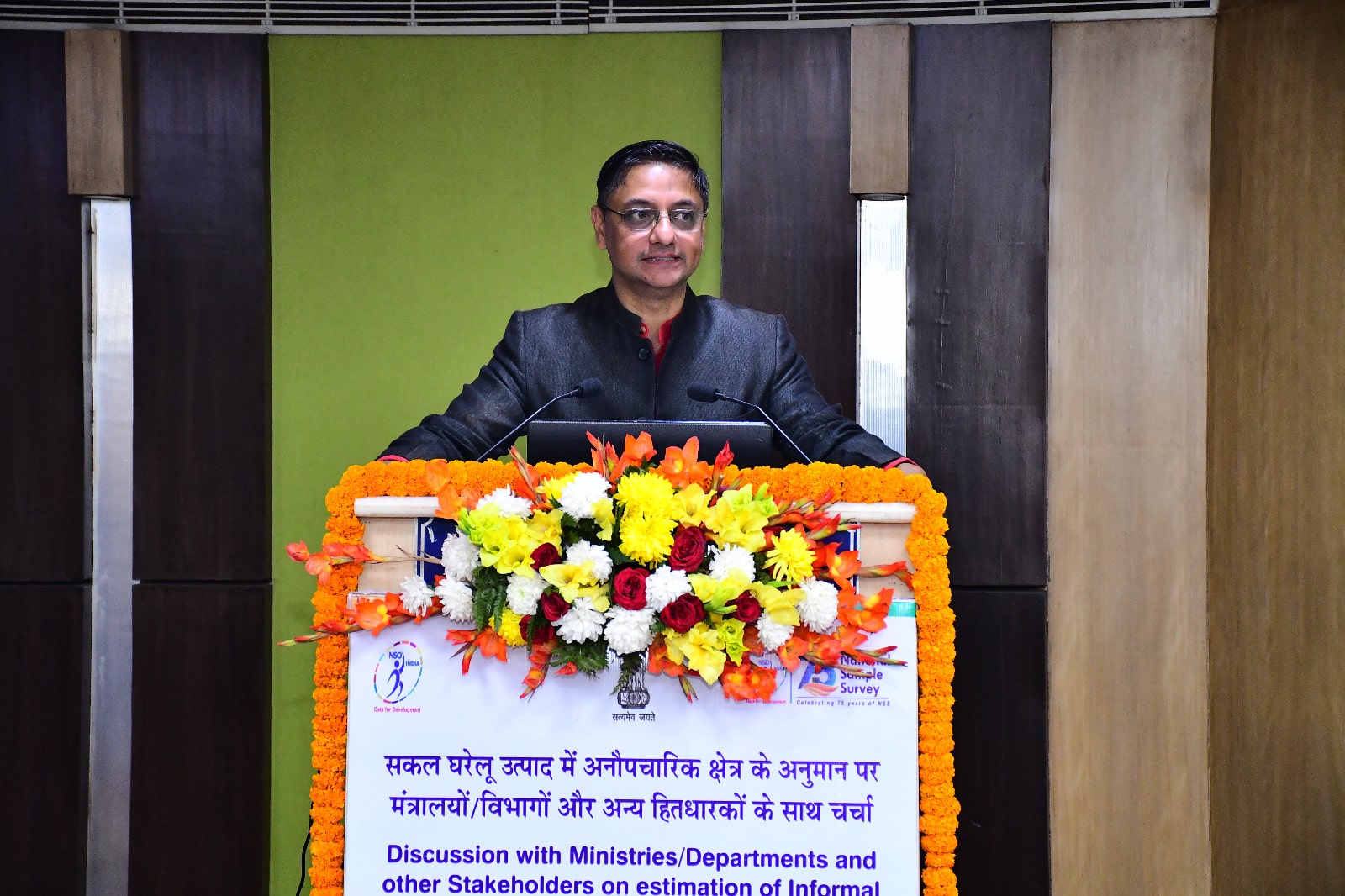Estimating the Informal Sector’s Impact on GDP

On January 30, 2025, the National Accounts Division of the Ministry of Statistics and Programme Implementation (MoSPI) held a significant consultation in New Delhi. The focus of this half-day event was the estimation of the informal sector’s contribution to the Gross Domestic Product (GDP). The consultation aimed to broaden the discussion surrounding the revision of the GDP base year from 2011-12 to 2022-23. This revision is crucial as it seeks to improve the methodology and incorporate new data sources for estimating the informal sector’s economic impact. According to National Accounts Statistics, the informal sector accounted for approximately 45% of the total GDP in the fiscal year 2022-23. Furthermore, the Periodic Labour Force Survey (PLFS) for 2023-24 revealed that around 61% of women workers in the non-agricultural sector are employed in informal enterprises.
The Changing Landscape of Informality
The inaugural session of the consultation featured Shri Sanjeev Sanyal, a member of the Prime Minister’s Economic Advisory Council. In his keynote address, he emphasized the evolving nature of informality in the economy, particularly due to digital advancements. He pointed out how digital payment systems, such as UPI, have transformed economic transactions. The rise of gig workers and social influencers exemplifies this shift. These changes highlight the need for updated methodologies to capture the informal sector’s contributions accurately. As more individuals engage in self-employment through digital platforms, understanding this new landscape becomes essential for policymakers and statisticians alike.
Sanyal’s insights underscore the importance of adapting to these changes. The informal sector is no longer just a traditional market; it now includes a diverse range of activities driven by technology. This evolution necessitates a reevaluation of how informal economic activities are measured and reported. By recognizing these shifts, the government can better formulate policies that support this growing sector and ensure that its contributions to the economy are accurately reflected in national statistics.
Enhancing Data Sources for Better Estimation
Dr. Saurabh Garg, Secretary of MoSPI, highlighted the importance of robust estimation methods for the informal economy. He discussed the ministry’s ongoing efforts to enhance data collection and analysis. The ministry is exploring the use of administrative data sources, such as Goods and Services Tax (GST) records and digital payment systems. Additionally, MoSPI is preparing a Statistical Business Register to improve data accuracy.
Starting in January 2025, MoSPI will provide monthly employment statistics from the Periodic Labour Force Survey. It will also release quarterly estimates for the unincorporated sector through surveys of informal enterprises. Dr. Garg urged various ministries and departments to leverage their administrative databases to supplement survey-based estimates. This collaborative approach aims to create a more comprehensive understanding of the informal economy’s contribution to GDP.
The Secretary also emphasized the government’s policy interventions to address challenges associated with informality. Over the past seven years, approximately 7 crore people have transitioned to more secure, formal jobs, according to the Employees’ Provident Fund Organisation (EPFO). The International Labour Organization’s World Social Protection Report 2024-26 indicates that India’s social protection coverage has doubled, reflecting the government’s commitment to improving the welfare of informal workers.
Collaborative Efforts for Robust Estimation
The consultation featured technical sessions focused on the data sources and methodologies used in compiling Gross Value Added (GVA) in National Accounts Statistics. Key industries with high levels of informality, such as agriculture, construction, and personal services, were discussed. The Annual Survey of Unincorporated Sector Enterprises (ASUSE) was highlighted as a vital source for measuring productivity in the informal sector.
Participants included representatives from various government ministries, research institutions, and industry associations. They supported MoSPI’s initiative to enhance survey data with administrative data sources. Discussions revolved around exploring databases like the PM Street Vendor’s AtmaNirbhar Nidhi and Pehchan Cards for artisans. The aim was to capture seasonal activities, measure the digital economy, and improve coverage of the gig economy.
Secretary Garg invited research institutions and industry associations to conduct studies on alternative data sources and methodological improvements. This collaborative approach is essential for achieving the goal of a developed India (Viksit Bharat) through accurate GDP estimation. By fostering partnerships and encouraging innovative research, MoSPI aims to create a more inclusive and comprehensive understanding of the informal sector’s role in the economy.
Observer Voice is the one stop site for National, International news, Sports, Editor’s Choice, Art/culture contents, Quotes and much more. We also cover historical contents. Historical contents includes World History, Indian History, and what happened today. The website also covers Entertainment across the India and World.

